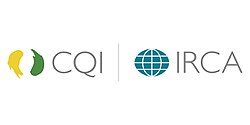This article has multiple issues. Please help improve it or discuss these issues on the talk page . (Learn how and when to remove these messages)
|
 | |
| Formation | 13 January 1919 |
|---|---|
| Type | Chartered professional body |
Professional title | CQI and IRCA |
| Headquarters | London, United Kingdom |
| Coordinates | 51°31′02″N0°06′41″W / 51.5171°N 0.1115°W |
Region | United Kingdom |
| Services | Professional membership |
Chief Executive Officer (acting) | Vince Desmond |
Chair of the Board | Ian Mitchell |
Main organ | Board of trustees |
| Budget | GBP £5.1 million (2012) |
| Website | www |
Formerly called | Technical Inspection Association, Institution of Engineering Inspection, Institute of Quality Assurance |
The Chartered Quality Institute (CQI), formerly known as the Institute of Quality Assurance (IQA), is a quality management company. The CQI owns the International Register of Certified Auditors (IRCA), a certification body for auditors of management systems.